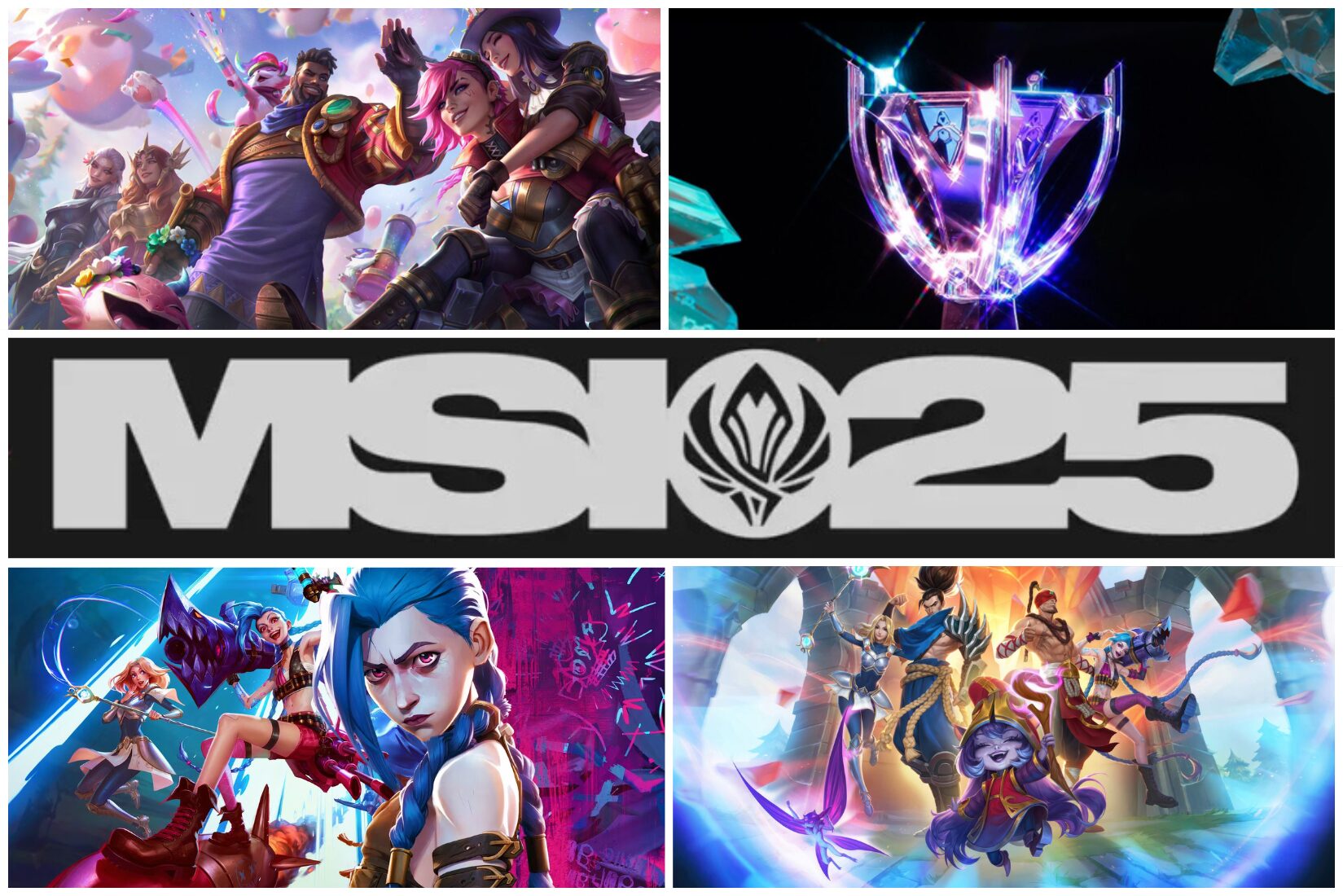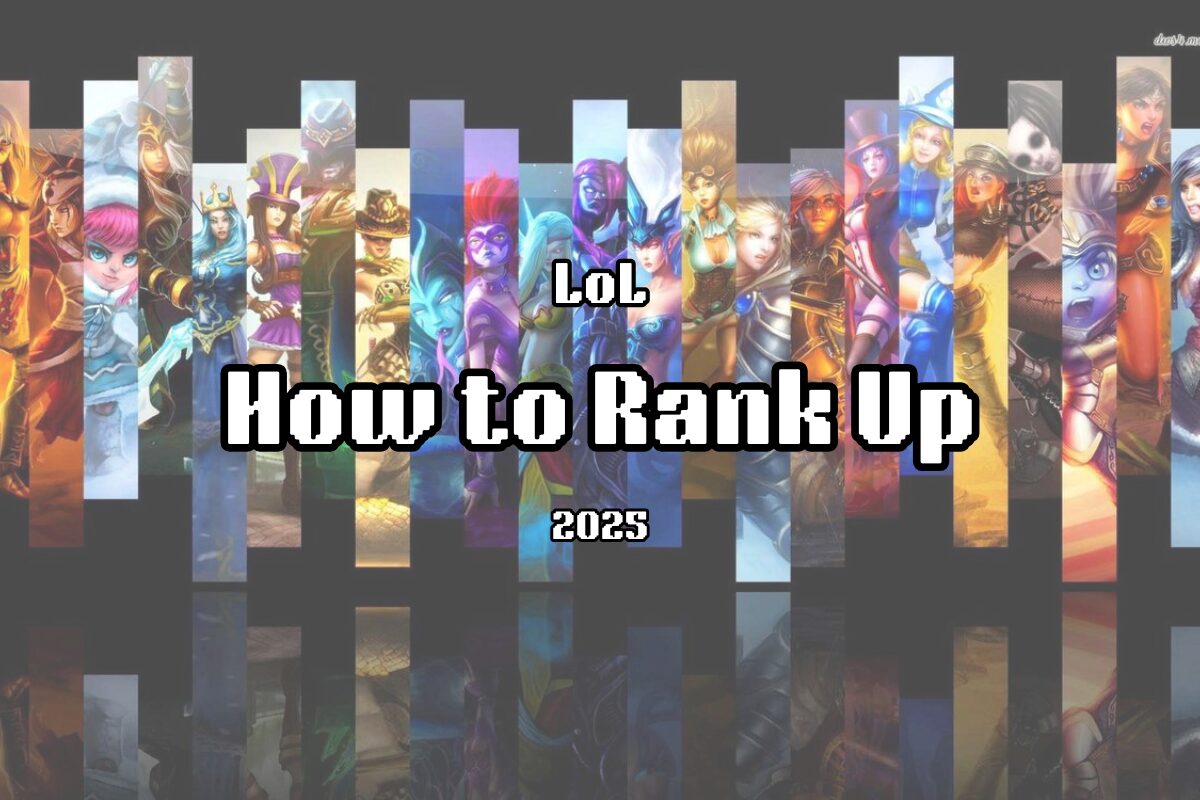The LOL MSI 2025 Tournament is structured to rigorously evaluate team performance, strategy, and adaptability across multiple stages, with global standing and World Championship qualification at stake. The tournament draws direct qualifiers and regional contenders into a format designed to reward consistency, tactical acumen, and resilience under high-pressure environments.
Summary
LOL MSI 2025 Tournament : Schedule and Structure
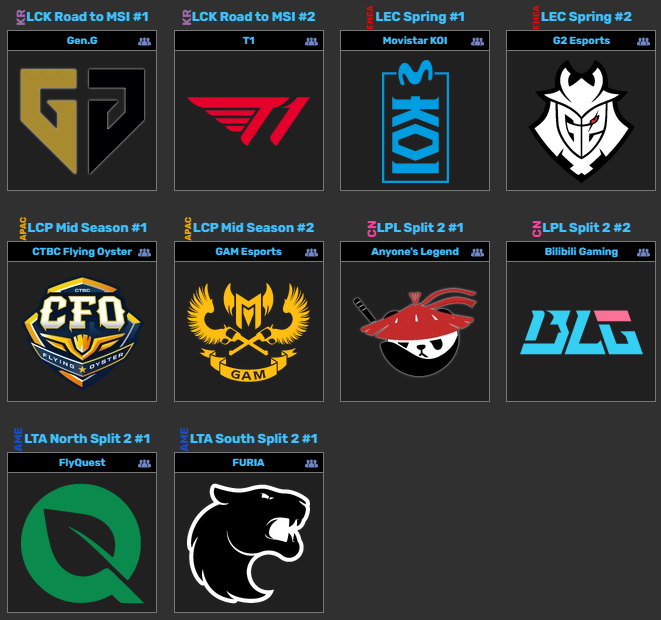
Play-In Stage: June 28 – 30
Four teams—BLG (LPL), G2 (LEC), GAM (Vietnam), FURIA (Brazil)—compete in a double-elimination, best-of-five (BO5) format. This configuration sharply tests depth and flexibility in both champion pools and macro decision-making. With only two teams advancing, each match outcome critically affects advancement probability, increasing both in-game and psychological pressure on participants.
Knockout Stage: July 2 – 13
The main event incorporates eight teams: six direct-seeded from major regions and two Play-In qualifiers. The double-elimination BO5 bracket mitigates the risk of a single loss, requiring both upper- and lower-bracket runs to demand consistent performance over a sustained period.
Grand Final: July 13
Set in Vancouver’s Pacific Coliseum, the Grand Final determines the MSI champion. High-level team communication, mechanical execution, and strategic drafting are all expected to peak in this conclusive matchup. Weeks of preparation accumulate in this contest, as data analytics, real-time adaptation, and coach interventions play definitive roles.
LOL MSI 2025 Tournament : Participating Teams and Seeding Details
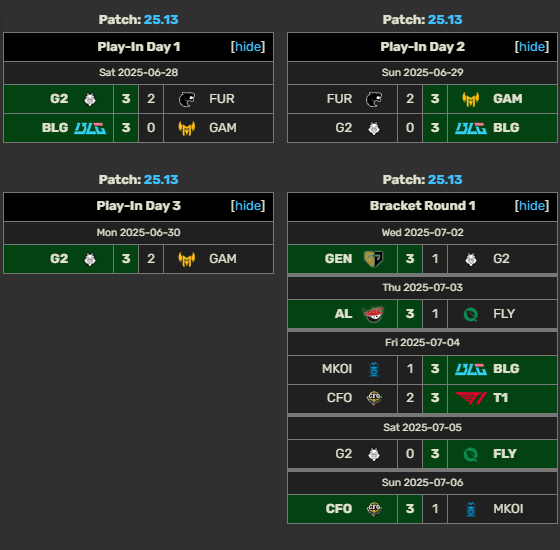
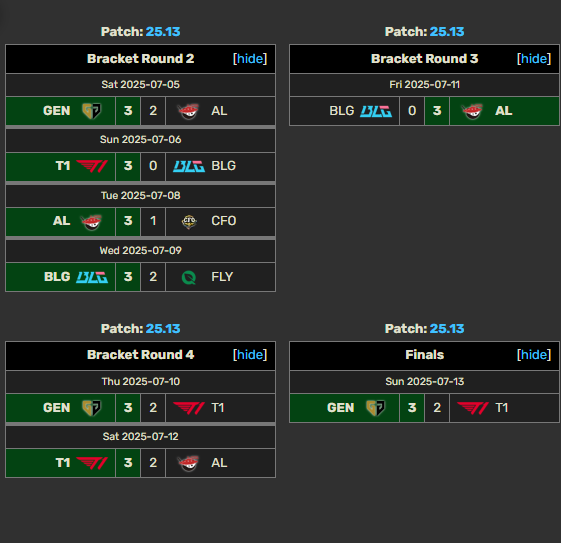
Direct Qualifiers:
- LCK (South Korea): GEN (1st seed), T1 (2nd seed)
- LPL (China): AL (1st seed)
- LEC (Europe): KOI (1st seed)
- LTA (Americas): FLY (1st seed)
- LCP (Pacific): CFO (1st seed)
Notably, HLE’s performance in the Global Pioneer Tournament enables T1’s direct seeding into the Knockout Stage, rewarding region-wide consistency. This alters bracket dynamics and increases the competitive density in Knockouts.
Play-In Contenders:
- BLG (LPL 2nd seed)
- G2 (LEC 2nd seed)
- GAM (Vietnam)
- FURIA (Brazil)
Play-In rounds showcase emerging regional talent and robustness against international competition. Regions employ various qualifying gauntlets—Swiss-system for Europe, double-elim for Americas, and qualifiers for Asia-Pacific—supporting technical and strategic evolution within their leagues.
Innovations and Competitive Dynamics
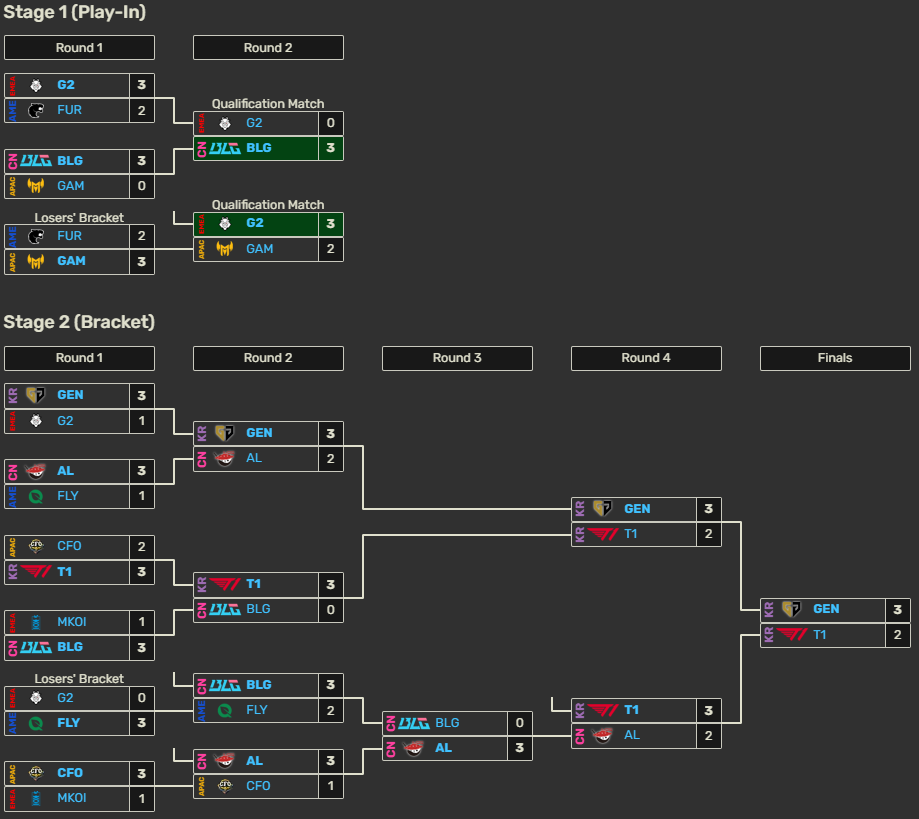
—Picture source from internet—
Format & Game Theory
Double-elimination with BO5 series introduces non-binary tournament progression, significantly reducing variance and rewarding teams that can tactically adjust between series. Preparation in champion select, in-game vision control, and cross-map synergy gain heightened value. Each phase of the event tests macro, micro, adaptability, and psychological endurance.
Regional Meta & Competitive Analysis
LCK squads typically emphasize coordinated macro play and controlled game tempo; LPL representatives counter with high-pressure, high-velocity mechanics and skirmish-heavy tactics. This dichotomy creates distinct win conditions and meta evolution, setting up technically significant matchups for analysts.
Impact Players
Expect key performances from the likes of Faker, Chovy, Knight, and Tarzan. Their capacity for laning dominance, map impact, and adaptability under evolving pick/ban circumstances heavily influences team results and tournament metagame.
Broader Implications and Esports Significance
World Championship Qualification
MSI results feed directly into regional Worlds slot allocation. With the possibility of LPL increasing its quota from three to four based on MSI outcomes, teams have strategic incentive for optimal performance, raising the tournament’s global stakes.
Broader Esports Impact
MSI outcomes inform not just regional reputations but also future sponsorship prospects and resource allocation. Strong international showings drive fan engagement metrics and can alter organizational trajectories through increased visibility and capital influx.
Conclusion
The 2025 League of Legends MSI deploys a robust, technically driven format to identify regionally and globally elite teams. The event acts as a critical testbed for both strategic and operational excellence, mapping the trajectory of the competitive calendar leading toward Worlds.

